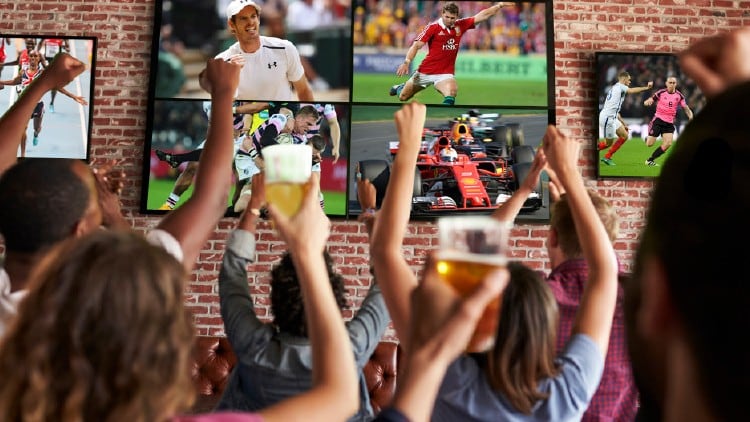Trying to convert outdoor area for rugby viewing
Q. My pub is getting increasingly popular with rugby fans and I am looking at showing some of the Autumn Internationals live outside (weather permitting) in my garden at around 3pm. Do I need a licence for this and are there any issues I should be concerned about?
A. The showing of live television broadcasts is not a licensable activity and, therefore, no premises licence or temporary event notice is required.
But if you were to record the game and show it later, technically, that would be regarded as a ‘film’, which would make it a licensable activity and if you did not have films on your premises licence, a temporary event notice would be needed; however, I suspect that is unlikely.
There are a number of possible copyright issues around the showing of entertainment also to consider; the sports channels (Sky and BT for example) issue their own licences that will cover these. In relation to terrestrial television, there is what is known as a ‘MPLC’ licence but that is not normally required for live sport. In most circumstances only a TV licence is needed, but England matches, for example, are on Sky.
You do need to be wary, of course, because although it is not a licensable activity if your customers enjoy the game, attend in large numbers and become loud, then there is a risk of disturbing your neighbours and complaints being made to you or to the local authority – and that is a matter you should consider before embarking on alfresco viewing.
Proof of age condition for on-trade licence
Q. I have just taken over a pub and there is a condition relating to ‘Challenge 25’. Does this mean that I can only sell alcohol to people who are 25 or above?
A. No, it does not, fortunately. There is much confusion about Challenge 25 and the Challenge 21 procedure. There is nothing in the Licensing Act about these, they are simply good practice. There is a mandatory condition on every premises licence requiring the premises licence holder to have a policy in force in relation to avoiding underage sales of alcohol but the legal minimum age for consumption of alcohol (at or in a bar) remains 18. It is, therefore, only potentially a criminal offence to sell alcohol to someone who is under 18 years of age.
A number of years ago as concerns were raised about underage drinking, there was a lot of test purchase activity. The Challenge 21 and Challenge 25 procedures began to appear. The thinking behind them is logical that is if you effectively build in with Challenge 21 three years then it is a buffer and means that you are more likely not to serve someone who is under 18. The more severe Challenge 25 is normally reserved for off-licences where there is a greater risk perceived of under-18s trying to purchase alcohol.
However, Challenge 25 is creeping into the on-trade also and is requested in many areas as a ‘standard’ condition despite evidence that there are less failed test purchases and, nationally, one in three 16 to 24-year-olds do not drink alcohol at all.
Many pubs and bars, particularly in the high street or which trade late, operate Challenge 25 as it is stronger due diligence and greater protection for them. In some pubs, there is a little bit more reluctance because if a person who is say 28 and lucky enough to look 23 then they will face a Challenge 25 challenge, which can cause some customer dissatisfaction particularly if that person has not brought out any ID; strictly speaking if the policy is followed, he or she should not be served alcohol.
However, bear in mind Challenge 25 as a condition on your licence must be followed, and your staff should be trained in it. In summary, any person at the bar who appears to be 25 or younger should be asked for ID.

